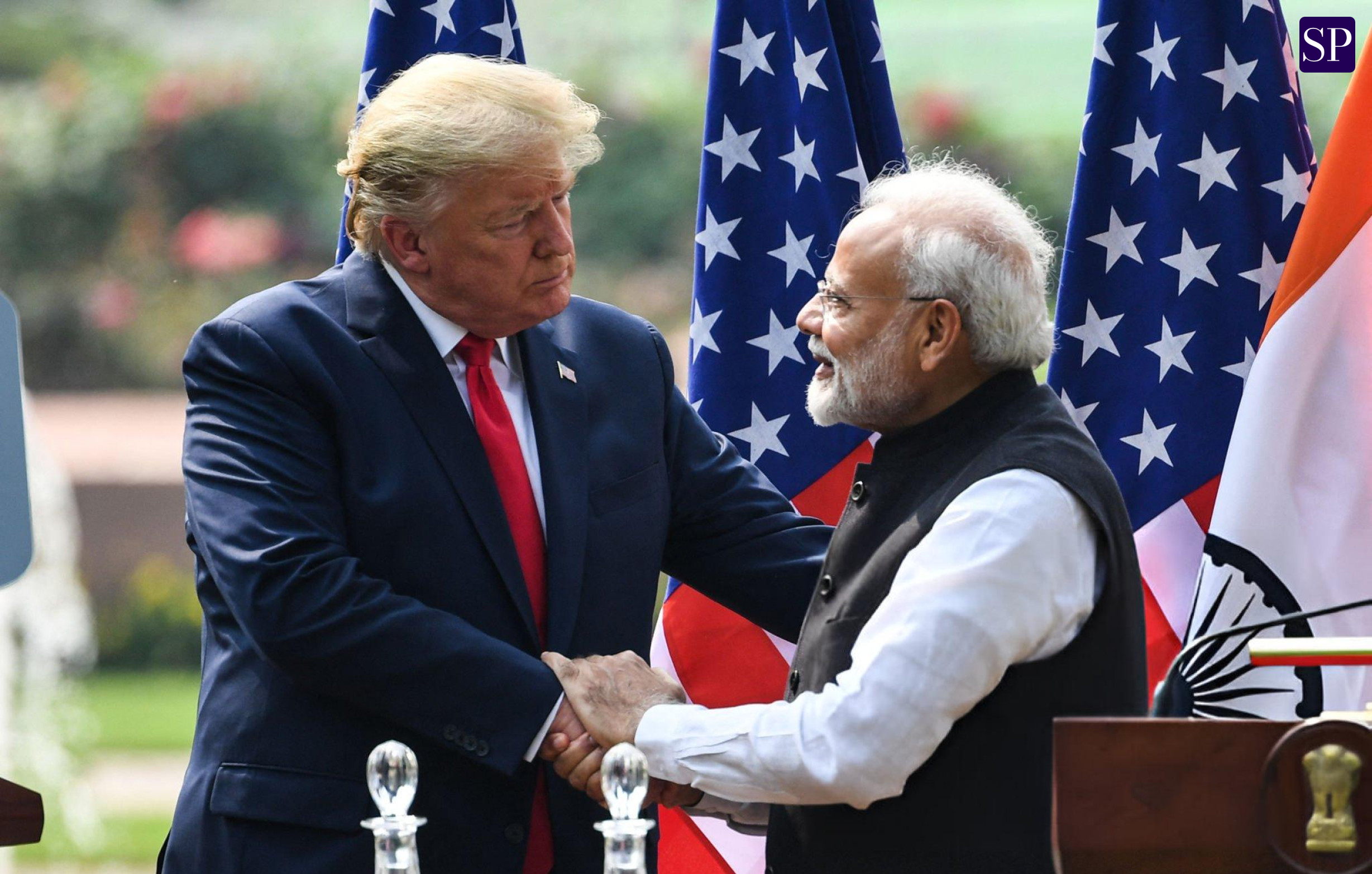Few nations are moving as swiftly as India to navigate the evolving trade landscape under US President Donald Trump’s second term. To prevent a potential trade conflict, Prime Minister Narendra Modi has taken a series of proactive steps, making rapid economic adjustments aimed at appeasing the White House and ensuring that India’s booming economy remains resilient.
In a matter of weeks, Modi’s administration has made notable concessions, addressing several critical concerns on Trump’s trade agenda. The recent tariff reductions across multiple sectors, including motorcycles and textiles, highlight a significant shift in India’s approach to US trade relations. These efforts underscore a strategic recalibration as India seeks to maintain bilateral stability in the face of a protectionist US trade policy.
Major Concessions and Policy Shifts
The most striking shift came when Modi’s government announced a historic overhaul of India’s tariff structure, significantly lowering import duties on a wide range of products. These include:
- Textiles
- Motorcycles
- Industrial equipment
- Electronic goods
This move is seen as a preemptive action to ensure that India remains a favored trading partner of the US, as Trump has continued his aggressive stance against nations with high trade barriers.
Additionally, India has agreed to accept thousands of unlawful migrants from the US, a decision aligned with Trump’s strict immigration policies. Moreover, Modi’s government reaffirmed its commitment to maintaining the US dollar as a key currency in trade transactions, reinforcing confidence in India’s willingness to collaborate closely with Washington.
The current approach under Modi’s leadership is a stark contrast to his stance during Trump’s first term, when India resisted several US demands despite maintaining cordial relations with Washington. The failure to reach common ground earlier led to the US revoking India’s preferential trade status under the Generalized System of Preferences (GSP).
Now, Indian officials indicate that the priority is deepening economic ties, particularly in defense, technology, and investment sectors. Experts suggest that India’s evolving policies are aimed at securing a long-term advantage by positioning itself as a key alternative to China for US manufacturers looking to diversify supply chains.
Global Trade Impact and Comparative Strategies
The United States’ protectionist trade policies have led many countries to reassess their economic strategies. Other global players, such as South Korea, Japan, and Australia, have also taken steps to mitigate risks posed by US tariffs:
- South Korea is increasing its purchases of American agricultural and energy products.
- Japan is negotiating energy supply arrangements with the US.
- Australia has expedited talks with Washington to avoid tariffs on its aluminum and copper exports.
India, however, faces a unique economic dilemma. With a trade deficit of $78.1 billion, largely due to energy imports, maintaining strong US trade relations is vital. The US continues to be one of India’s largest trade partners, with a bilateral trade surplus of $35.3 billion. This underscores the economic stakes for India in maintaining a positive rapport with Washington.
Strengthening Indo-US Cooperation
The India-US relationship has evolved significantly, with stronger cooperation in:
- Defense and security partnerships
- Advanced technology collaborations
- Manufacturing and supply chain diversification
Recent years have seen an influx of US-based corporations investing in India, including tech giants like Apple Inc. and Micron Technology Inc., both of which have expanded manufacturing operations in the country.
Additionally, Modi is expected to visit the White House soon, marking one of the first high-profile foreign leader visits under Trump’s renewed presidency. The visit will likely include discussions on expanding trade agreements, defense cooperation, and technology-sharing initiatives.
Trump’s Tariff Policies and Their Impact on India
Despite India’s concessions, Trump has consistently expressed concerns about high Indian trade barriers. The reduction in heavy-duty motorcycle tariffs specifically aims to address a grievance Trump has frequently voiced—one that directly impacts Harley-Davidson Inc., a key American manufacturer that has long struggled with India’s complex import regulations.
By lowering duties on motorcycles and other industrial imports, India is signaling its commitment to addressing US trade concerns while ensuring the broader economic benefits of a stable Indo-US trade relationship.
Challenges Ahead for India’s Trade Strategy
While India has shown willingness to accommodate US demands, several geopolitical challenges remain, including:
- India’s Oil Imports from Russia:
- The US has imposed sanctions on Russia following the Ukraine conflict.
- India continues to import Russian crude oil, which may be a point of contention in Indo-US discussions.
- Security and Diplomacy Concerns:
- The recent indictment of an Indian official in the US, accused of plotting against an American citizen, adds a layer of diplomatic complexity.
- India has responded by initiating legal proceedings against those involved, seeking to resolve the matter without straining relations with Washington.
- Trump’s Unpredictability:
- Analysts caution that making concessions to Trump may not guarantee long-term stability.
- Given Trump’s history of renegotiating agreements, India could face additional pressure for further trade adjustments in the future.
Modi’s recent trade and economic policy shifts demonstrate India’s proactive approach in maintaining a strategic alliance with the US. By addressing Trump’s key trade concerns, Modi’s government seeks to secure economic stability, sustain India’s global trade competitiveness, and position itself as a leading alternative to China.
However, the road ahead remains uncertain. As global trade dynamics shift, India must remain agile and strategic, ensuring that its policies not only appease short-term US demands but also align with long-term national interests.
The upcoming Modi-Trump discussions will be a critical turning point, determining the future trajectory of Indo-US trade relations in an increasingly competitive and geopolitically sensitive world economy.
